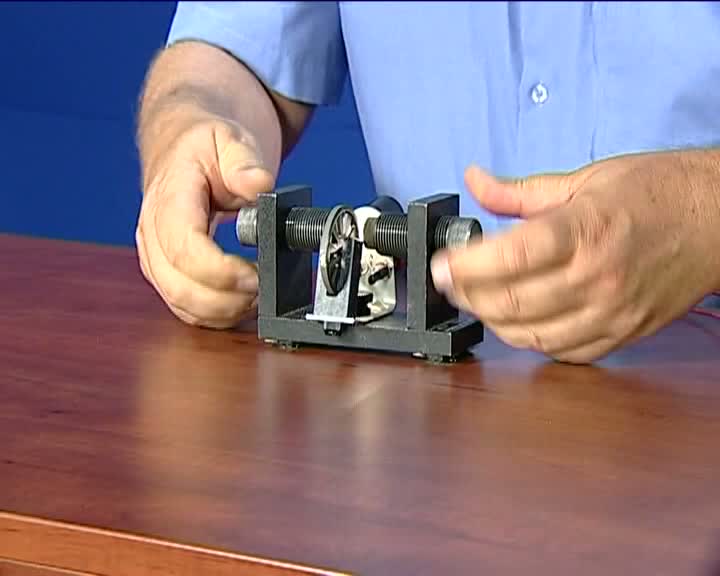„Curie kerék” változatai közötti eltérés
| 7. sor: | 7. sor: | ||
Kérdés: Minek lehet még számottevő szerepe a szakaszos mozgás frekvenciájának kialakításában? | Kérdés: Minek lehet még számottevő szerepe a szakaszos mozgás frekvenciájának kialakításában? | ||
| − | = Curie wheel | + | == Curie wheel == |
| − | + | ||
| − | + | ||
At a given temperature every ferromagnetic material will loose its properties which can be restored by cooling it below this Curie temperature. The Curie motor is a properly balanced wheel whose perimeter is covered with ferromagnetic material. Placing it into a magnetic field it will remain steady since it is balanced. By heating a point of the perimeter it will reach the Curie-temperature and locally the ferromagnetic property is destroyed. Consequently the balance is broken and the wheel will turn. This turning of he wheel will be repeated periodically with a time needed to reach the Curie temperature. Question: what else can effect the frequency of this periodical motion? | At a given temperature every ferromagnetic material will loose its properties which can be restored by cooling it below this Curie temperature. The Curie motor is a properly balanced wheel whose perimeter is covered with ferromagnetic material. Placing it into a magnetic field it will remain steady since it is balanced. By heating a point of the perimeter it will reach the Curie-temperature and locally the ferromagnetic property is destroyed. Consequently the balance is broken and the wheel will turn. This turning of he wheel will be repeated periodically with a time needed to reach the Curie temperature. Question: what else can effect the frequency of this periodical motion? | ||
</wikitex> | </wikitex> | ||
A lap 2013. április 18., 15:32-kori változata
Az elhangzó szöveg
Minden ferromágneses anyag egy rá jellemző hőmérsékleten elveszti ferromágneses tulajdonságait, amelyeket csak ez alá a Curie-hőmérséklet alá hűtve nyer vissza. A Curie motor egy kerületén ferromágneses anyaggal bevont, jól kiegyensúlyozott kerék, amely erős mágneses térbe helyezve mozdulatlan, hiszen a mágneses erők kiegyensúlyozottak. A kerület egy pontját lámpával melegítve a Curie hőmérsékletet elérve lokálisan elveszti ferromágnességét, megszűnik a kiegyensúlyozottság, a kerék elfordul. Ez az elfordulás nagyjából olyan időközönként ismétlődik, amennyi idő a Curie-hőmérséklet eléréséhez kell. Kérdés: Minek lehet még számottevő szerepe a szakaszos mozgás frekvenciájának kialakításában?
Curie wheel
At a given temperature every ferromagnetic material will loose its properties which can be restored by cooling it below this Curie temperature. The Curie motor is a properly balanced wheel whose perimeter is covered with ferromagnetic material. Placing it into a magnetic field it will remain steady since it is balanced. By heating a point of the perimeter it will reach the Curie-temperature and locally the ferromagnetic property is destroyed. Consequently the balance is broken and the wheel will turn. This turning of he wheel will be repeated periodically with a time needed to reach the Curie temperature. Question: what else can effect the frequency of this periodical motion?
